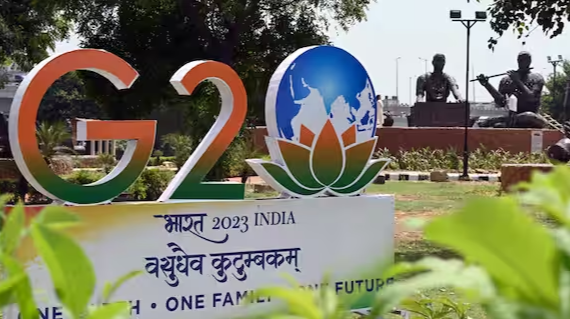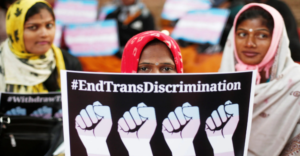Introduction
The G20 Summit was hailed as one of the most influential things India could have ever done. It cemented India’s position as a global leader and furthered its negotiation powers. But how the country got ready for the event has raised eyebrows.
Hiding the Poverty
The impact will be severe, according to the city’s poorer citizens and daily wage earners, many of whom live on the edge and cannot afford to miss even one day of work, despite the Delhi police’s repeated assurances that this is “not a lockdown”.
However, part of this renovation for the G20 Summit involves shrouding the city’s marginalised with a set of thick green curtains. The residents of the Coolie Camp near Vasant Vihar in Delhi were concealed from the gaze of the foreign delegates attending the conference by a green cloth.
Similarly, the RK Puram region saw the authorities destroy roadside houses. The homeless people who lived there now have to find other places to live, which is a hardship given the abrupt demolition of these huts.
As dignitaries like Joe Biden, Rishi Sunak, and Olaf Scholz arrive, a broad lockdown has been imposed on Delhi’s 32 million residents to maintain tight security and clear highways. The impact will be severe, according to the city’s poorer citizens and daily wage earners, many of whom live on the edge and cannot afford to miss even one day of work, despite the Delhi police’s repeated assurances that this is “not a lockdown.”
Over 4,000 homeless persons who were previously sleeping on the streets and under flyovers were relocated to shelters outside of Delhi. This initiative, although seems praiseworthy under the G20 Summit, is sadly just a cover-up. The authorities need to provide a tangible and long-term solution to the house and they are left to themselves during the unforgiving Delhi winters.
Cruelty with Animals

Apart from the mistreatment of poor and homeless people in this time of the G20 Summit, the condition and the way stray animals, especially dogs have been treated has also been horrific. There has been footage of stray dogs illegally and brutally being removed from roads and public places that have been resurfacing over the internet.
The videos show the cruelty with which these animals have been treated in the name of ‘beautification’ of the city for the international G20 summit. This raises the moral question of whether it is okay to treat animals as we please in the name of development. Of course, it’s not.
The footage shows how untrained workers were employed in the task of picking up these dogs. They have been found using metal rods whose usage for dogs is banned, they can be seen mishandling dogs and their actions are convincingly inhuman.
Several activists and animal welfare organizations like People For Animals (PFA) have claimed that the methods used to capture them violate the guidelines of the Animal Welfare Board of India and the Animal Birth Control (Dogs) Rules, 2001.
And the problem doesn’t end here. The capturing and the methods involved in the same aren’t the only issues at hand concerning the animals. Even the relocation has been problematic. The dogs were picked up on the grounds of being sterilized ahead of the G20 Summit.
However, they have been relocated and left in alien areas after the process. This means that they weren’t left from the areas they were picked up. This is essentially an issue for the dogs as they are territorial animals.
Conclusion
All of this points to the fact that the G20 Summit, along with being deeply successful for the nation has also raised certain questions of the ethics and morality of such internationally driven summits and what they entail for the oppressed.
This not only urges us to question the standards on which these developmental initiatives like the G20 Summit work but also points to the continued discrimination and oppression against the marginalized and weak in society to the point that they need to be hidden on the international stage, which just is a way of putting a curtain on the state’s failure.
– ADITYA SRIVASTAVA AND LIYA ANN MARY
MUST READ: TRACING THE RICH HISTORY OF NAMES: INDIA OR BHARAT?





